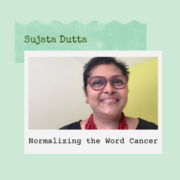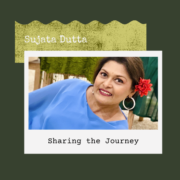The Benefits and Pitfalls of Blogging About Your Illness
In his book, The Wounded Storyteller, Arthur Frank, Professor Emeritus of Sociology at the University of Calgary, writes that when we are ill we are wounded not just in body, but in voice. He describes how illness can radically alter how a person relates to the world and how we need to find a way to restore our fractured identity. When I was diagnosed with breast cancer over a decade ago, writing a blog, Journeying Beyond Breast Cancer, helped me express myself, reconnect to a new sense of self, and find my voice again.
Throughout her life, the writer Virginia Woolf maintained that her work was incomplete until it was shared with readers. And I think this is also true of being part of a blogging community. When we share our writing, someone else has heard our voice. Someone else cares and understands. So often, illness causes us to feel isolated and cut off from others. Blogging is a way for us to find a shared sense of connection and community.
Yet sharing our story online is not without its pitfalls; the most obvious of which is a loss of privacy. You should consider how revealing your medical history online might have an impact on your family and professional circumstances. How will your employer, co-workers, or other family members view you? Do you risk being over-identified with your illness? For me, disclosure of my own story has evolved from initial anonymity to a point where I now choose to share more openly. However, the degree to which I share information still depends on the space where I share it and the degree of trust I have with the people I share with (for instance I consider my blog a safe space to tell my story, but I am more cautious on Twitter). But what happens if that safe space is violated and our expectations of trust are shattered? When our words are taken out of context or used for a purpose we didn’t intend? Is information shared publicly implicitly available to everyone just because it is in the public domain? What are the ethics of research that includes collecting and analyzing patient stories or observing online behaviour without individuals knowing they are being included in research? In an age when technology has outpaced the ethical underpinnings of research and the culture surrounding privacy has changed profoundly, these are questions we need to find answers to.
Although we understand that what we share online is in the public domain, we nevertheless trust each other to maintain a collective sense of privacy, which includes not having our words reproduced without our knowledge or taken out of context. The issue of maintaining privacy in the public domain was brought into sharp focus two years ago when blogger Lisa Adams became the subject of an online debate. Adams, who blogged and tweeted about her experience of living with end-stage cancer, came to the attention of two journalists who strongly criticised what they called “Adams dying out loud.” Their opinions ignited a firestorm of debate about the public disclosure of illness, and the sharing of personal choices surrounding treatment and death and dying.
Illness makes us vulnerable and learning to navigate the digital landscape while also managing our vulnerability is a skill that we need to master if we are to protect ourselves online. Think carefully about what the process of online disclosure entails. Weigh up what you expect to gain from it and what implications sharing this information might have on your career or family life. If you are a parent or carer who writes about a patient, do you have their permission to share this information? In the case of writing about a child, what future effect might this have on one who cannot give consent or understand the significance of their story being shared so widely?
People have always gathered together to share what they know about health and illness, hoping to help and learn from others. What’s new is that we now have the ability to expand the reach of our conversations at internet speed and at internet scale. What happens in real life happens on line, but faster. This has many benefits, but it also means there is a higher potential for unintended consequences when we have less control over who sees our stories. It’s a good idea to periodically review the privacy settings on your social media accounts to decide if you are comfortable with the level of control you have over the information you share. Ask yourself, if your intended audience were sitting in front of you now, how comfortable would you feel sharing this information? How do you think you’ll feel after sharing it? Are you ready for feedback (positive or negative)? Remember sharing your story online doesn’t have to be all or nothing. Go slowly at the beginning, allow trust to build over time, and share only when you feel ready to do so.
Above all, be courageous in sharing your story. I am filled with gratitude for those who bravely blazed the trail in opening the discussion and decreasing the isolation connected with serious illness. I continue to be in awe of the connections and communities forged in the digital space and I look forward to seeing how this will evolve over time.

A Stanford Medicine X e-Patient scholar, Marie Ennis O’Connor is an internationally recognized keynote speaker, writer, and consultant on global trends in patient engagement, digital health and participatory medicine. Marie’s work is informed by her passion for embedding the patient voice at the heart of healthcare values. She writes about the experience of transitioning from breast cancer patient to advocate on her award-winning blog Journeying Beyond Breast Cancer.





